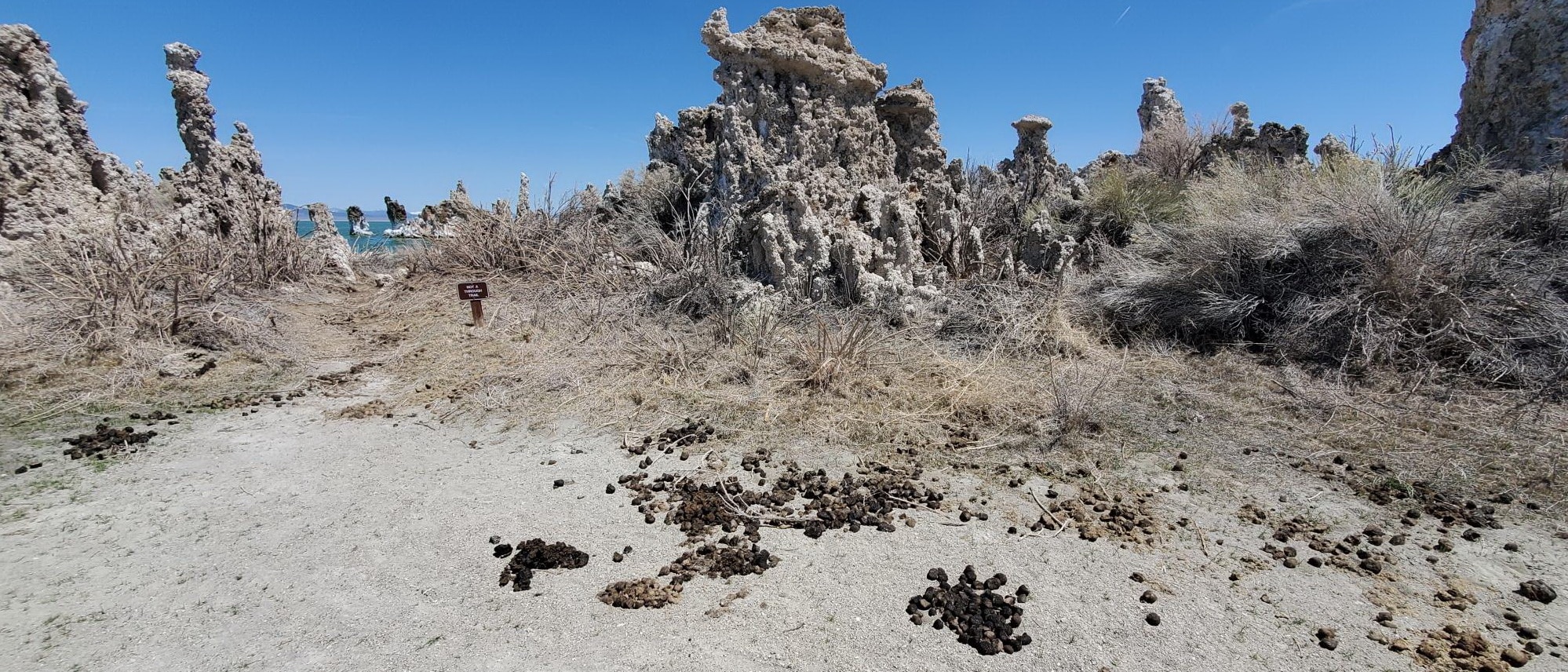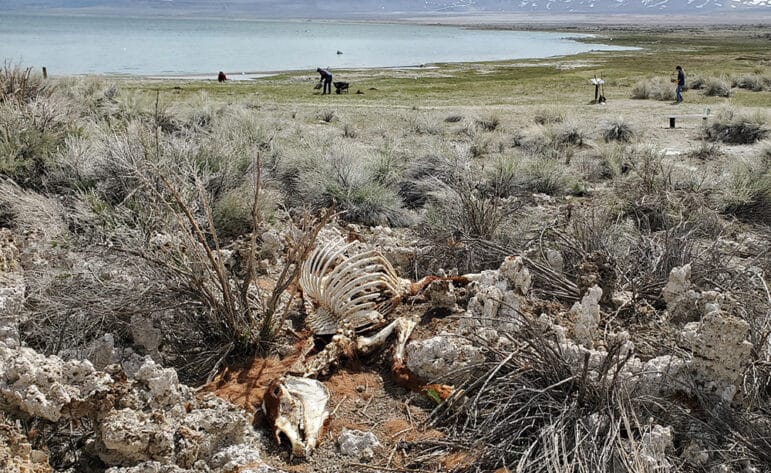
Last winter wild horses overwintered along the south shore of Mono Lake throughout South Tufa and Navy Beach. Record winter snow and poconip fog dramatically reduced public access and between 30 and 200 horses lingered in the area until spring. The impact was significant. Nearly every square meter of trail at South Tufa and Navy Beach was covered in manure, and manure piles blocked handicap access along the boardwalk from the parking lot to the lake. Several horses died at South Tufa over the winter and their scavenged carcasses were draped between tufa towers and along the lakeshore.
Volunteer clean-up crews, including Mono Lake Volunteers, Inyo National Forest staff, and Mono Lake Committee staff have worked over multiple days to remove most of the manure from the trails and shoreline to preserve access and maintain some quality of visitor experience. Even with a small and dedicated army of volunteers, it’s impossible to remove all the manure, and some horses remain in the vicinity. Inyo National Forest staff removed at least two carcasses from busy trail areas.
The Inyo is working with agency partners, including the Bureau of Land Management, and preparing to revise the 1988 Management Plan for the Montgomery Pass Herd Management Area (HMA). The Inyo is the lead in managing this expanding wild horse problem that has extended well beyond its original HMA. The Inyo recently told the Committee that planning must be complete before active management occurs, yet that planning has not begun.
In addition to causing detrimental impacts to tufa, fragile alkali meadows, freshwater springs, and bird habitat, the horses present a growing public safety threat as they encroach across new range and appear on Highway 167, Highway 120 East, and move closer to the busy four lanes of Highway 395. The Inyo is aware that the conflicts with wild horses have the potential to escalate, and there has been local support for taking actions that preserve federally protected wild horses within their designated herd management area while also protecting visitors, as well as the fragile habitat and ecological health of Mono Lake, the Mono Lake Tufa State Natural Reserve, and the Mono Basin National Forest Scenic Area.
The increased level of horse impacts this past winter underlined the urgency of taking action soon. Meanwhile, the Committee is helping to monitor horse impacts, actively maintain a positive visitor experience at the lakeshore, and keep the visiting public informed as the Inyo initiates planning and management.

Previous coverage of horses at Mono Lake:
- Horse manure removal at South Tufa from February 2022
- Expansion of horse presence in Mono County and at Mono Lake from October 2022
- Wild horse activity at South Tufa from June 2022
- Wild horse herd reaches South Tufa from July 2021
Recent press:
- Los Angeles Times article from May 19, 2023
- San Francisco Chronicle article from May 18, 2023
- Guardian article from June 8, 2023
Top photo by Bartshe Miller.

I don’t think that horse manure & bones are too much for people to deal with. All natural & occurring in nature, after warm winds blow the manure will be recycled & the bones will go away in time. City folk need to get over themselves.